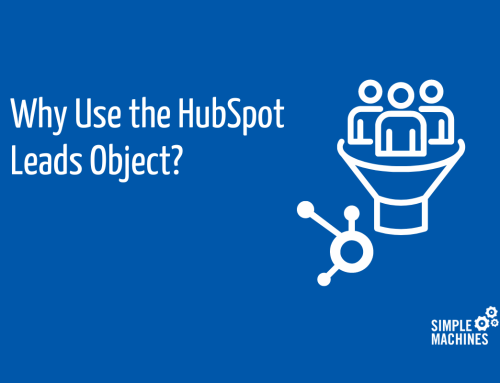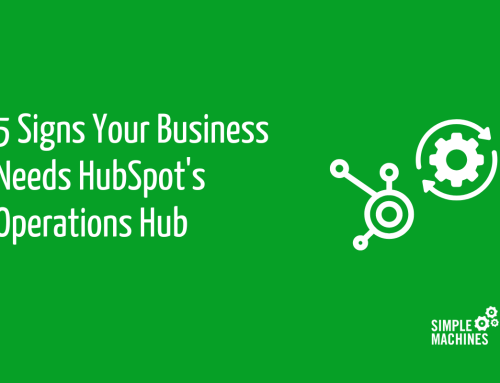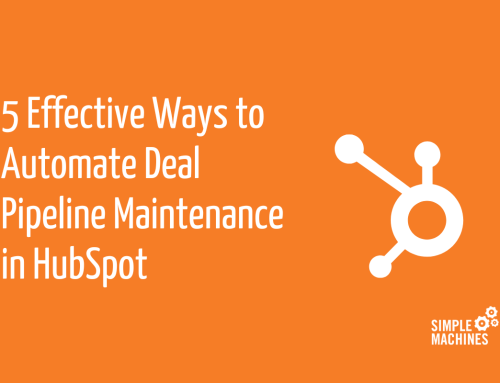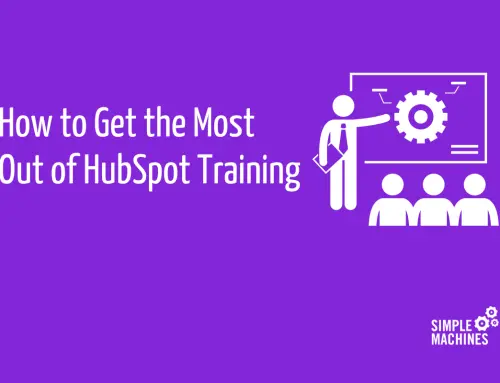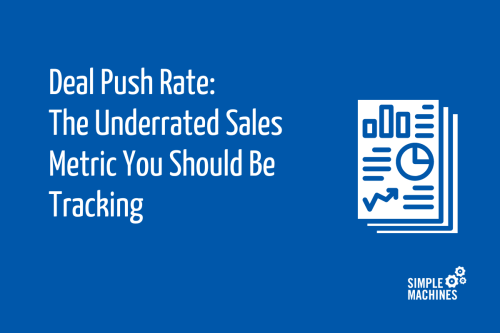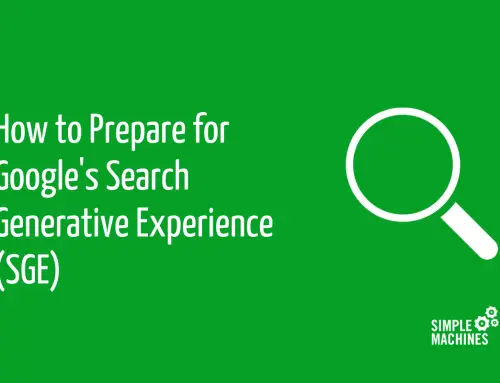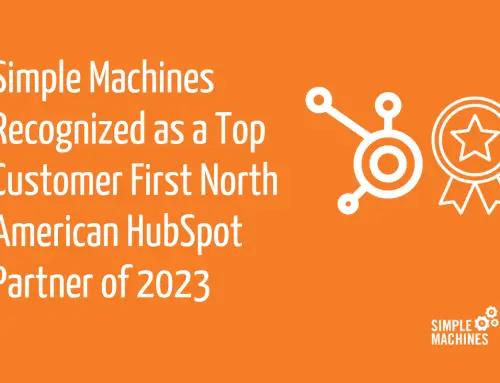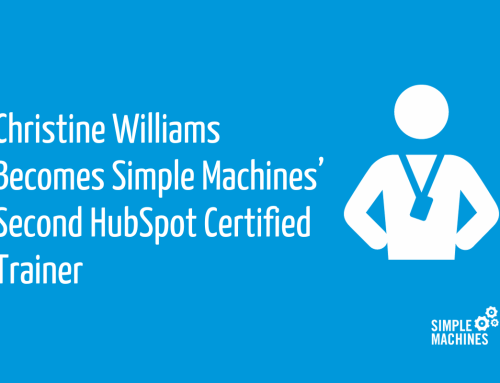Today, just about every small business going appreciates the value of SEO. But as some companies level up their SEO strategy, the need for powerful tools to compete in this arena continues to grow.
Luckily, there are many tools to help businesses big and small accomplish their SEO goals and boost their traffic. And when you’re looking at lists of the top SEO platforms, there are two names you’ll likely see: Semrush and Moz. (An honorary mention goes to Ahrefs, which also tops the charts but we personally haven’t used.)
In our opinion, these are both helpful platforms – they just each have something different to offer. And one might just be a better fit than the other, depending on your SEO goals.
Let’s look at what makes Semrush and Moz stand out and what questions to ask when deciding between the two.
WHAT SHOULD AN SEO PLATFORM INCLUDE?
A quick reminder as we go forward! Any SEO platform that’s worth your time and money should at least be able to help with the following:
- Keyword research, planning and management, which help find the best words or phrases to get your website in front of your ideal audience.
- Site audits to find errors or areas for improvement on your site.
- Traffic analytics to monitor your site’s users, sessions and overall performance.
- Website position tracking to see how you’re fairing in search results.
These are some benchmark requirements for SEO platforms, but some tools on the market go above and beyond these standard features.
MEET SEMRUSH
Semrush is self-described as an “all-in-one tool suite for improving online visibility and discovering marketing insights.” And when they say all-in-one, they’re not kidding.
Semrush isn’t only an SEO tool – it’s more of a well-rounded marketing platform. Along with providing a broad range of keyword research, planning features and site auditing and crawling capabilities, it also allows you to:
- Find optimal keywords to help your Google Ads paid search campaigns succeed.
- Publish social media posts directly from your dashboard and track their performance.
- Find keyword-driven content topics to increase traffic to your website and social platforms.
- Ensure your content is following Semrush’s keyword recommendations with its Writing Assistant.
- Get in-depth data on your competitors’ online presence. This not only includes your competition’s website analytics but information on where they’re focusing their marketing efforts.
- Choose keywords to follow with brand monitoring, which helps your marketing team stay on top of your online brand reputation and awareness.
If you’re looking for a tool that can go past search optimization and help build your overall digital marketing strategy, Semrush is worth exploring.
MEET MOZ
While Semrush chooses to zoom out with content marketing tools, paid search features and brand monitoring capabilities, Moz zeroes in. Their “About” page puts it best – “We focus on search engine optimization.” For companies looking only for an SEO partner to add to their current tech stack and marketing plan, Moz’s streamlined offerings could be right for you.
Unlike Semrush, Moz offers two different subscription options, tailored to different business needs:
Moz Pro
This subscription includes all the essential tools you’ll need to improve your website’s SEO and ranking, including:
- Keyword research, planning and management features, including an SEO keyword generator to find more impactful phrases.
- Page by page optimization scoring and recommendations.
- In-depth site crawling tools to help find content, metadata and redirect errors that drag down your SEO.
- Inbound and backlink analysis, which gives you detailed information about the links pointing to or included on your website. With this data, you can boost your odds of ranking better and reduce spam traffic.
- Rank tracking on Moz keeps tabs on your site’s keyword performance and search visibility.
- Competitive research to keep track of other companies in the industry.
Moz Local
Moz Local is specifically for companies with physical locations. This subscription helps you manage your local business listings on major platforms like Google and Facebook. It’s also designed to target customers who are most likely to visit your shops in person.
(Note: Moz Local is not included in Moz Pro and needs to be purchased separately.)
Moz Local’s features include:
- Company review management, which allows you to respond to online testimonials immediately.
- Ongoing listing sync to keep your information updated on search engines, social media platforms and data aggregators. This will also automatically find inaccurate duplicate listings.
- Dashboard integrations with social media profiles, which allow you to post directly from Moz Local.
- Powerful reporting insights that measure your online presence score, traffic, clicks and impressions.
HERE’S WHAT YOU NEED TO ASK
Both platforms offer impressive features, which is why we consistently see them topping the lists of the best SEO platforms on the market.
But whenever we’re deciding if a platform is right for our clients (or ourselves!), we ask these questions:
DOES IT HAVE THE RIGHT TOOLS?
SEO software with fancy bells and whistles won’t do your company any good if you’re paying for features you don’t need. On the other hand, you don’t want to be wasting your money on a tool that isn’t fulfilling your SEO needs.
Semrush is an excellent choice for companies looking for a platform that goes beyond SEO capabilities.
This will be a positive investment if you’re interested in paid search, content creation, social media tracking and brand monitoring. However, if your company is looking for a lean and mean SEO machine, look to Moz for the standard features you’ll need for SEO improvement.
WHAT’S THE COST?
Semrush, Moz Pro and Moz Local all have several tiers depending on your company size, budget and desired capabilities.
- The Pro Plan: $119.95 monthly/$99.95 with yearly subscription
- The Guru Plan: $229.95 monthly/$191.62 with yearly subscription
- The Business Plan: $449.95 monthly/$374.95 with yearly subscription
For small businesses, we recommend the Guru plan. This gives you access to their best features that aren’t available with Pro. You’ll also be able to do more with your subscription. For example, the Guru plan lets you track 1500 keywords with daily updates instead of the Pro plan, which only allows 500.
- The Standard Plan: $99 monthly/$79 with yearly subscription
- The Medium Plan: $179 monthly/$143 with yearly subscription
- The Large Plan: $249 monthly/$199 with yearly subscription
- The Premium Plan: $599 monthly/$479 with yearly subscription
The Standard Moz Pro plan paid yearly is the least expensive of the tools we’re discussing. But again, there’s a considerable difference between the available features in the Standard and the Medium plan. For example, say you want to make several lists of keywords for different campaigns. With the Medium plan, you can make 30 lists, compared to the Standard plan’s five.
We suggest starting with the Medium plan to get the most bang for your buck – and according to Moz, this is the most popular subscription level.
As we mentioned, Moz Local needs to be purchased separately from a Moz Pro subscription. Their yearly tiers include:
- The Lite Plan: $129
- The Preferred Plan: $179
- The Elite Plan: $299
The Preferred plan is Moz Local’s most popular tier, offering all of the Lite Plan’s features and the ability to respond to reviews and posts on social media and directories all from one dashboard.
It’s worth mentioning that both Semrush, Moz Pro and Moz Local have tools available for free without a subscription, although your capabilities will be limited.
HOW MANY USERS DO THEY ALLOW?
For Semrush and Moz, a user is defined as someone with individual login credentials. Across the board, Semrush only allows companies to have a single user. If you need more, you’ll have to pay a set fee (depending on your subscription level) for each additional person.
On the other hand, Moz offers more users in each ascending tier, up to five with the Premium Plan. You can also buy additional users for $49 each, regardless of tier level.
It sounds like a small thing, but user numbers are worth considering.
Having only one set of login credentials means your team won’t use this tool concurrently. How many people will need to access at a time? Is it just your team that will be using it, or are you sharing it with a client or marketing agency?
A lack of user access could quickly complicate your process. If you believe you’ll need more users, you should account for these extra costs.
WHAT RESOURCES DO THEY OFFER?
We’re happy to say that both Semrush and Moz have robust resource offerings.
Whether you’re looking to get more from your new platform or need a crash course in basic SEO marketing, these platforms can help further your education and sharpen your SEO skills.
(We were particularly impressed with Moz’s free 6-part video series, “The One-Hour Guide to SEO,” which covers all the fundamentals you need to get started.)
OUR OPINION?
The Simple Machines team has worked with both Moz and Semrush over the years for client work and our own marketing efforts. For our needs, Semrush has proved to be a better choice. The extensive tool offerings give us the in-depth SEO analytics we need to help our clients grow as a digital marketing agency.
(And as a team of marketing nerds, we also have to give Semrush extra points for their creative paid advertising.)
But both these tools are popular for a reason. Their varied subscriptions and features offer something for every business, regardless of what your goal might be. And after taking a closer look at their offerings, their pricing and your company’s SEO objectives, you should now be able to choose the one that’s right for you.
If you’re having trouble kicking off your SEO efforts or your website needs a keyword makeover, get in touch with our SEO experts today.


